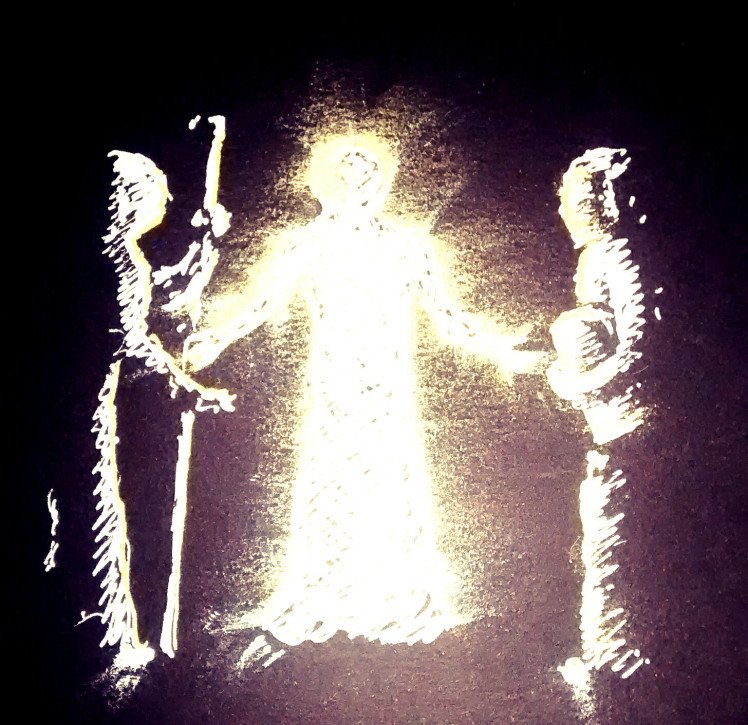On January 1st 1985 a passenger jet crashed in Bolivia killing all 29 people on board. No bodies have ever been recovered nor the black box voice recorders, but last year Isaac Stoner and Dan Futrell decided to have an unusual holiday to see if they could find out more about what happened. So they prepared to climb Mt Illimani and see what they could discover in what became a very beautiful and eerily silent two weeks away. The first thing they saw when they reached the suspected crash site was a life jacket - "a piece of equipment intended to save somebody's life" as Futrell puts it. "So not only did we know we were in the right spot, but we were instantly reminded that there's tragedy here for 29 families.”
On the final day of searching at the lower site, Stoner unearthed a piece of metal with a label attached to some wires that read "CKPT VO RCRD" an abbreviation of Cockpit Voice Recorder. Fuelled with hope, not far away they discovered a spool of magnetic tape - could this be the evidence needed to explain what finally happened? In short no, but they have more in roads into discovering the truth that previous official investigations.
We talk of mountaintop experiences - moments of joy or clarity. The mountaintop experience we hear as this morning's Gospel reading enables us to gather some evidence about who Jesus is, but also to discover something new about ourselves.
 |
| Rev'd. Ally Barrett's artwork of the Transfiguration (c) Ally Barrett 2017 used with permission. |
The Transfiguration features in all 3 of the Synoptic Gospels (Matthew, Mark and Luke) but with some slight variations to the story. The fact that all 3 record the experience Jesus had on that mountaintop should indicate it’s significance. It full of references to or hints at other biblical stories - Moses encounters God on Mt Sinai, his face shone and clothes changed; dazzling clothes and shining faces are indicative of angels in the book of Daniel and in the Gospels; a cloud on the mountain or in the wilderness symbolised for the people of Israel the presence of God; the voice of God uttering similar words is heard at the beginning of the Epiphany season at Jesus’ baptism; and aside from those, there are some striking parallels between what we hear today and the crucifixion/resurrection story we will hear in a few weeks - Jesus is accompanied by Moses and Elijah today and later by 2 criminals; Moses and Elijah depart leaving Jesus alone in glory and later we hear of someone wondering whether Elijah will come to the crucified Jesus to save him; in both events 3 followers are witnesses and so on. Today’s Gospel I believe is meant to be read referring back to those Old Testament stories and in the light of Christ’s passion and resurrection to come.
2 quick points. Firstly: Then Peter said to Jesus, ‘Lord, it is good for us to be here; if you wish, I* will make three dwellings* here, one for you, one for Moses, and one for Elijah.’
5While he was still speaking, suddenly a bright cloud overshadowed them, and from the cloud a voice said, ‘This is my Son, the Beloved;* with him I am well pleased; listen to him!’
John Cage caused consternation in the music world in 19?? with his 3 movement piece called 4:33. If you’ve heard it you’ll know why. It instructs the musicians to sit in silence for four minutes and 33 seconds. Yet the piece isn't silent - it allows a space to be created by the interaction between musician and the audience to listen and to rediscover the music of the world around and within us - birdsong, traffic noise, our breathing or heartbeat - sounds we so often screen out as background noise - but are still there as we listen. In the Gospel today Jesus is revealed to Peter et al as the glorified beloved Son of God, but this news doesn’t help Peter understand what he should do as a result - he wants to build booths (perhaps to contain the experience) but God wants him to listen - but not as a one off experience. The voice tells us to literally go on listening to and for Jesus’ voice. Our faithful following of Jesus must centre not on our doing but our listening.
Secondly: When the disciples heard this, they fell to the ground and were overcome by fear. 7But Jesus came and touched them, saying, ‘Get up and do not be afraid.’ 8And when they looked up, they saw no one except Jesus himself alone.
I am struck on a daily basis at how frightened the Trump presidency is and how fearful it makes us all. The fear is masked by soundbites of power, calls to make America great again, and yet detaining and searching people who just look different at airport security; talk of travel bans and wall building are policies not of might but of fright. The politics of anxiety don't make people feel secure - they breed further suspicion in our streets and schools. We are all looking over our shoulders.
Verses 6 and 7 in today’s Gospel are unique to Matthew’s account. Perhaps this story is more about the transfiguration (literally the metamorphosis) of the disciples - as the glorious experience doesn't bolster their faith but fill them with so much fear that they cower. But notice that it is not the radiant Jesus that comes to them, but the human one as it were. It is He who reaches out and touches them with a hand that has so often provided healing and raised the dead. The disciples are transformed from fearful, anxious, inactive, cowards to brave, confident, active, champions of the faith - perhaps that’s why Jesus tells them to say nothing of the experience. Something in them has changed? Our faithful following of Jesus must also centre on reaching out the divine touch, through our hands to the fearful and anxious in our community.
So often we are human doings - like Peter. Filling our days with activity and noise. When were you last a human being who sat and listened - breaking the curse that our culture burdens us with about a need to be constantly busy as though we gain some worth by that - and just stopped and sat? Disciples of Jesus listen for His voice - not bound in a booth of scripture or tradition - but a voice that speaks through the arts and our culture and each other… but we only hear it if we conciously stop.
Our community is frightened - and it is. The police were visibly present in the village last week after some thefts; some are concerned about their health or that of a family member or friend; HS2 has been given royal assent without any sort of real awareness of it’s impact on not just the green space we enjoy or our views - but on homes and wellbeing locally. Can we be the ones who reach out a hand of friendship and love to the anxious and fearful? Jesus shows us we can.






